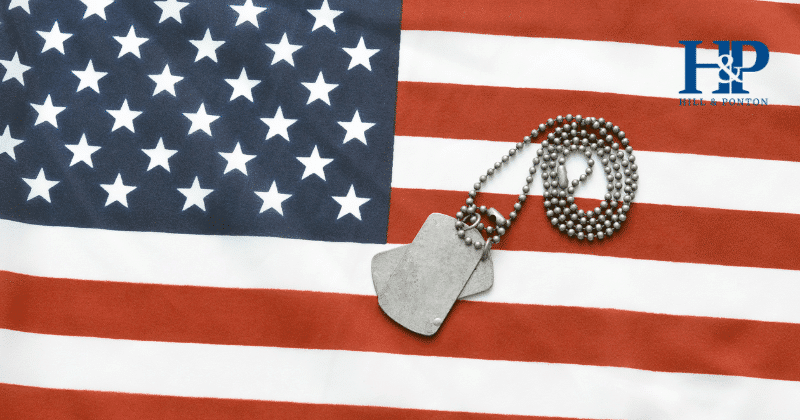Transitioning from military to civilian life is a significant step for any service member.
The Benefits Delivery at Discharge (BDD) program, offered by the Department of Veterans Affairs (VA), is designed to help service members file their disability claims before they are discharged.
This is in order for a veteran to receive benefits promptly after separation.
Eligibility and Application Process for BDD
To be eligible and apply for the BDD program, service members must first meet a series of criteria and then follow certain steps.
Below is a list of the criteria necessary to qualify:
- They must be on full-time active duty, including members of the National Guard, Reserve or Coast Guard.
- A known separation date is required, and it must be within the next 90 to 180 days.
- Provide a copy of their service treatment records – they must be accessible the VA will not have access to them yet since they have not been sent to the NPRC.
- Applicants must be available to attend VA medical examinations for 45 days from the date of claim submission.
Steps to the Application Process
The BDD application process, while straightforward, involves a number of steps that a servicemember must go through.
Below is a list of the general process:
- Preparation: Gather all necessary documentation, including service treatment records (STRs), Separation Health Assessment – Part A Self-Assessment, dental and mental health records and Direct Deposit information.
- Submission: Claims can be filed online through the VA’s official website (va.gov), which helps expedite the process. Alternatively, service members can submit their application via mail or fax to the Department of Veteran Affairs Claims Intake Center.
- Examinations and Evaluation: After submission, the VA schedules necessary medical exams and begins evaluating the claim to ensure a decision is made swiftly, ideally within 30 days post-discharge.
What are the benefits of the BBD program?
There are a number of benefits for veterans to utilize the BBD program.
Some of them include:
- Proactive Health Management: By requiring medical assessments and exams before discharge, the BDD program encourages service members to proactively address their health issues. This early intervention can lead to better long-term health outcomes.
- Seamless Transition: The BDD program facilitates a smoother transition from military to civilian life by resolving potential disability claims before the service member’s separation. This seamless transition helps reduce the stress and uncertainty that often accompany the end of a military career.
- Financial Planning: Knowing the outcome of disability claims shortly after discharge allows veterans to better plan their finances. This can be important for budgeting and financial stability in the initial phases of civilian life.
- Comprehensive Support: The BDD program is designed to offer comprehensive support by providing access to multiple resources, including health assessments and VA benefits briefings through the Transition Assistance Program (TAP). These resources ensure service members are well-prepared for life after the military.
- Early Access to Benefits: Successful claims through the BDD program grant veterans early access to benefits they are entitled to, which can include healthcare, financial compensation and other support. Early access can significantly impact the quality of life and well being of veterans and their dependents.
- Reduced Administrative Burden: By handling claims before discharge, the BDD program reduces the administrative burden on the VA and the service members. This streamlined process helps in faster resolution of cases, which benefits all parties involved.
These additional benefits reinforce the importance of the BDD program in providing necessary support and resources to service members as they transition from active duty, ensuring they receive the benefits and care they need.
Support and Resources
There are a number of support systems and resources available to service members through the Benefits Delivery Discharge (BDD) program.
They help facilitate a smooth transition from military to civilian life.
Below are explanations of some of the support systems available.
Transition Assistance Program (TAP)
The Transition Assistance Program (TAP) is a mandatory program for all service members transitioning out of military service, which includes tailored workshops and seminars that provide valuable information on the benefits and services available to veterans.
Service Provided:
- Benefits Briefings: TAP offers detailed briefings on veterans’ benefits, including health care, education and disability compensation. These can help service members understand their benefits they might be eligible to receive and how to apply.
- Personalized Planning: TAP provides individualized counseling to help service members develop their own specific transition plans, taking into account their career goals, educational aspirations and personal circumstances.
- Job Assistance: The program includes resources and training on resume writing, job search strategies and interviewing skills, in hopes of improving employment prospects for transitioning service members.
Military OneSource
Military OneSource is a comprehensive resource provided by the Department of Defense offering 24/7 support to military personnel and their families.
This service extends up to one year after the service member’s end of active duty.
Services Provided:
- Confidential Help: Free, confidential counseling sessions are available on issues such as stress management, marital problems, parenting and grief.
- Career and Education Resources: Assistance with resume preparation, career coaching and connections to educational opportunities help service members prepare for civilian employment.
- Relocation Assistance: Guidance on moving and housing concerns, which can be useful to those relocating after leaving service.
VA’s Toll Free Number
The Department of Veterans Affairs (VA) provides toll-free numbers to assist veterans and their families.
Some of the numbers include:
- Direct Assistance and General Inquiries (1-800-698-2411): Veterans and families can receive immediate assistance with their claims, get status updates and resolve issues or concerns they might have with their applications.
- Veterans Crisis Line (Dial 988 and Press 1): Specialized support for veterans who are in a mental health crisis.
The BDD program offers an important tool for service members preparing to transition back to civilian life.
By understanding and utilizing this program effectively, veterans can ensure they receive their deserved benefits promptly, setting a solid foundation for their post-military life.
Cassandra Crosby, an Accredited Agent and claims advocate for Matthew Hill & Shelly Mark’s teams, reviewed the information provided in this post.




